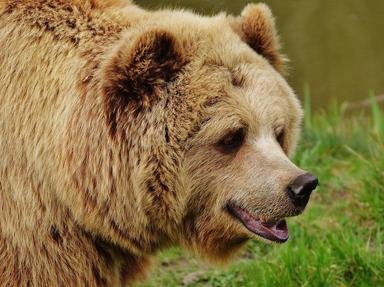Quiz Answer Key and Fun Facts
1. Once the colder months arrive, the bear will find a nice cozy den and sleep off the winter. Biologically, by what name is this 'big sleep' better known as?
2. Why does the bear hibernate?
3. If a human is forced to endure a long period of sleep such as a coma, they will suffer some level of muscle atrophy or wastage. What is the effect of hibernation on a bears' muscles?
4. Can female bears give birth during hibernation?
5. In what condition is a baby bear born?
6. In comparison to a human baby, how heavy is a newly born baby bear?
7. If a bear's metabolic processes are in balance during hibernation, which of the following will *NOT* be a requirement?
8. Mammals need to wake from hibernation to discharge a lethal build up of waste nitrogen. What by-product of fat burning does the bear use to overcome this?
9. The 'drift' into hibernation by a bear may take several weeks. What is this period known as?
10. Studying the hibernation of the bear is likely to produce benefits for which of the following
Source: Author
pollucci19
This quiz was reviewed by FunTrivia editor
crisw before going online.
Any errors found in FunTrivia content are routinely corrected through our feedback system.


